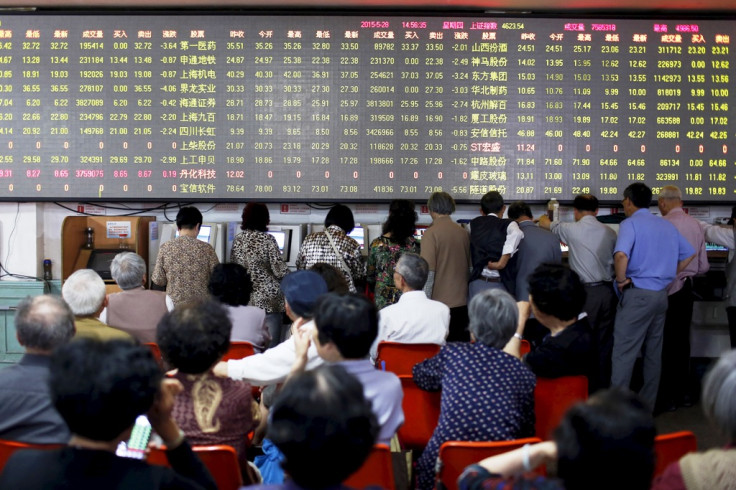Asian markets round-up: Bourses trade in red terrain post dismal China data

Asian markets traded lower on 9 June after mixed inflation data from China. The prospect of higher US interest rates sooner rather than later hit investor sentiment.
The Japanese Nikkei finished 1.76%, or 360.89 points, lower at 20,096.30.
The Shanghai Composite finished 0.36%, or 18.35 points, lower at 5,113.53.
Hong Kong's Hang Seng finished 1.20%, or 326.76 points, lower at 26,989.52.
Australia's S&P/ASX 200 finished 0.49%, or 27.20 points, lower at 5,471.30.
South Korea's Kospi Composite finished 0.06%, or 1.16 points, lower at 2,064.03.
India's S&P BSE Sensex finished 0.16%, or 41.84 points, lower at 26,481.25.
Market movements
The Shanghai Composite settled a tad lower after government data revealed that consumer inflation rose 1.2% in May after a sharp drop in food costs, particularly pork. Reuters had forecast a 1.3% increase. The producer price index (PPI) stayed unchanged at a negative 4.6%.
Depressing data failed to fuel stimulus bets, as market players awaited the index publisher MSCI's decision on whether to include mainland-listed A-shares in its benchmark emerging market index, CNBC reported.
Capital Economics said in a note to clients: "Today's data support our view that, the usual volatility in food inflation aside, price pressures are rising and that deflation concerns are overplayed."
Martin Lakos, division director at Macquarie Private Wealth, told CNBC: "The consensus is 50-50 for A-shares to go into the MSCI emerging market index, but there is some evidence that this will happen down the track. It's probably just a matter of time. However, it appears that the market may be a little too hot for MSCI to do anything right now."
Elsewhere, the ASX, which opened after a long weekend, finished at a four-month low following dismal inflation data from China, which is Australia's key trading partner.
Meanwhile, domestic data showed that Australian business confidence rebounded to a nine-month high in May, according to a survey by the National Australia Bank, as sales and profits improved.
India's benchmark Sensex ended lower following concerns that China's potential inclusion in the MSCI Emerging Market index could tactically hurt portfolio flows.
Capital Economics said in an 8 June note: "...There are rising concerns that a weaker-than-normal monsoon could push inflation up in the months ahead. But we remain sanguine: many factors in addition to rainfall and harvests help determine food price trends, and most of the others – including global prices and the government's ample food stockpiles – should help keep food inflation in check."
Company stocks
In Tokyo, Toshiba and Sony lost 2.41% and 2.36% respectively. Auto giant Toyota shed 1.71%.
Insurers Dai-ichi Life Insurance and T&D Holdings lost 4.11% each while Tokyo Marine lost 2.41%.
In Shanghai, Bank of Communications added 5.15% while Bank of China gained 2.13%.
China Minsheng Bank, ICBC and Agricultural Bank of China lost 2.25%, 1.95% and 1.70%.
In Hong Kong, casino operator Melco Crown lost 5.13% after research from Sterne Agee showed that Macau's gaming revenue had dropped 46% so far this month.
Rivals Wynn Macau and Galaxy Entertainment lost 4.53% and 3.70% respectively.
HSBC lost 0.48%, after rising some 1%, following the UK-based lender's announcement to cut costs by as much as $5bn within two years and lay off around 25,000 employees.
In Sydney, media firm Nine Entertainment plunged 16.12% while Seven West Media tanked 11.39% after issuing a profit warning.
In Seoul, Samsung Electronics lost 2.44% and LG Display 2.25%.
© Copyright IBTimes 2025. All rights reserved.



















